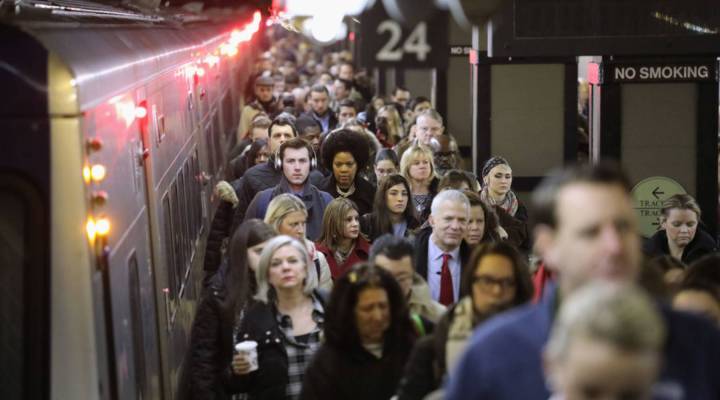
States’ remote-work-income-tax squabble is heating up

The number of us working remotely during the pandemic has raised a tricky tax question: If you work in one state and your company is located in another, which state gets the income tax revenue? A cluster of states are fighting over this at Supreme Court level. Marketplace’s Nova Safo joined host Sabri Ben-Achour to discuss.
Sabri Ben-Achour: At the heart of this case is a dispute between New Hampshire and Massachusetts. What’s that about?
Nova Safo: Because this is a cross-border issue, New Hampshire went straight to the Supreme Court for a resolution. And what it’s asking for is an answer to this pandemic-era question: If you’re a New Hampshire resident who would normally commute to work in Massachusetts, now working from home because of the pandemic, which state gets to tax you?
Is it Massachusetts, where you’d normally be working from? Or is it New Hampshire, where you’re temporarily working from?
And as you mentioned, Sabri, a number of states are caught up in this dispute. They’ve filed briefs in support or opposition of New Hampshire’s position.
Ben-Achour: There were telecommuters before the pandemic. How were they taxed before?
Safo: Typically there’s two ways in which states tax income. One is by using reciprocity agreements. We asked Kim Rueben at the Urban-Brookings Tax Policy Center to explain.
Rueben: For example, if you worked in DC, but you lived in Maryland, Maryland would get that income tax. In other states, they’re more aggressive at saying that if you do work physically in their state, they want to collect income taxes from that activity.
Safo: In that second scenario, for more aggressive states — like Massachusetts — the question is: What if you’d be working from an office located within its borders but for the pandemic? Billions of dollars in taxes are at stake.
There’s a lot happening in the world. Through it all, Marketplace is here for you.
You rely on Marketplace to break down the world’s events and tell you how it affects you in a fact-based, approachable way. We rely on your financial support to keep making that possible.
Your donation today powers the independent journalism that you rely on. For just $5/month, you can help sustain Marketplace so we can keep reporting on the things that matter to you.

















